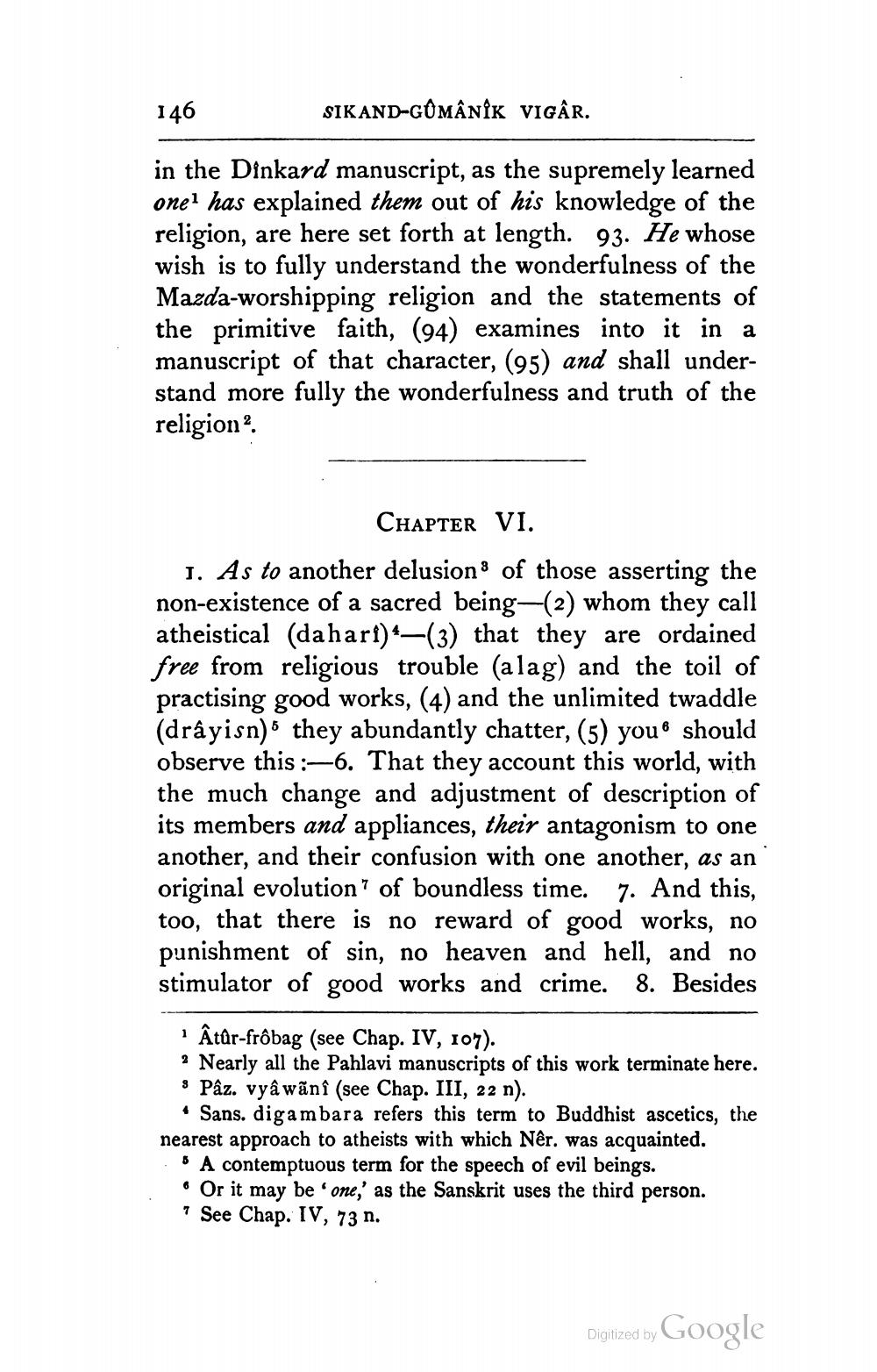________________
146
SIKAND-GOMÂNÍK VIGÂR.
in the Dinkard manuscript, as the supremely learned onel has explained them out of his knowledge of the religion, are here set forth at length. 93. He whose wish is to fully understand the wonderfulness of the Mazda-worshipping religion and the statements of the primitive faith, (94) examines into it in a manuscript of that character, (95) and shall understand more fully the wonderfulness and truth of the religion?
CHAPTER VI. J. As to another delusions of those asserting the non-existence of a sacred being—(2) whom they call atheistical (dahari)4—(3) that they are ordained free from religious trouble (alag) and the toil of practising good works, (4) and the unlimited twaddle (drayisn)s they abundantly chatter, (5) you should observe this :46. That they account this world, with the much change and adjustment of description of its members and appliances, their antagonism to one another, and their confusion with one another, as an original evolution? of boundless time. 7. And this, too, that there is no reward of good works, no punishment of sin, no heaven and hell, and no stimulator of good works and crime. 8. Besides
· Âtûr-frôbag (see Chap. IV, 107). * Nearly all the Pahlavi manuscripts of this work terminate here. • Pâz. vyâwânî (see Chap. III, 22 n).
• Sans. digambara refers this term to Buddhist ascetics, the nearest approach to atheists with which Nêr. was acquainted.
A contemptuous term for the speech of evil beings. Or it may be one,' as the Sanskrit uses the third person. ? See Chap. IV, 73 n.
Digitized by Google




